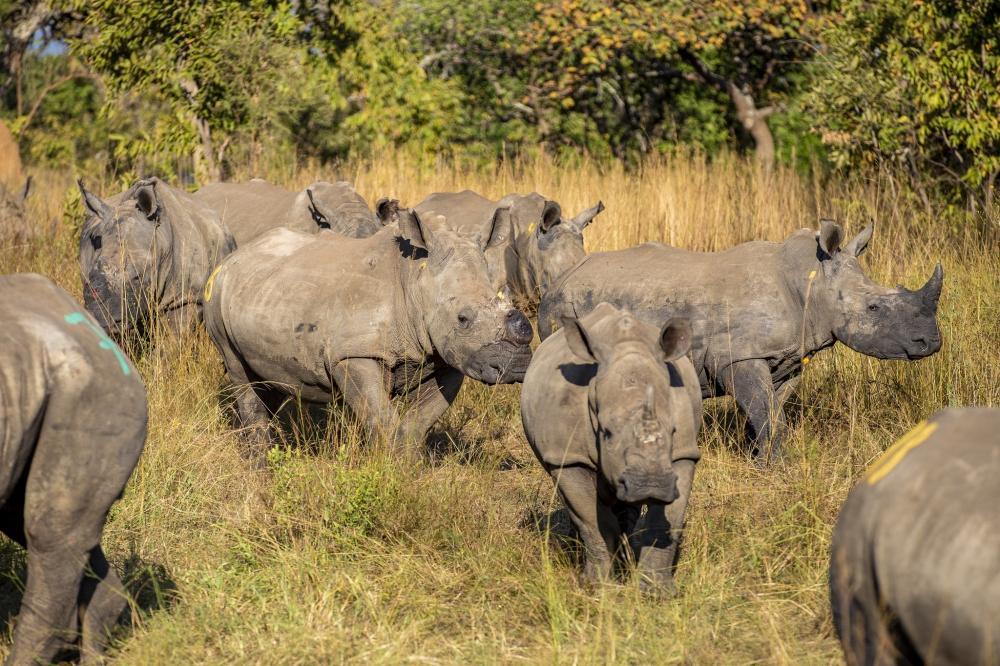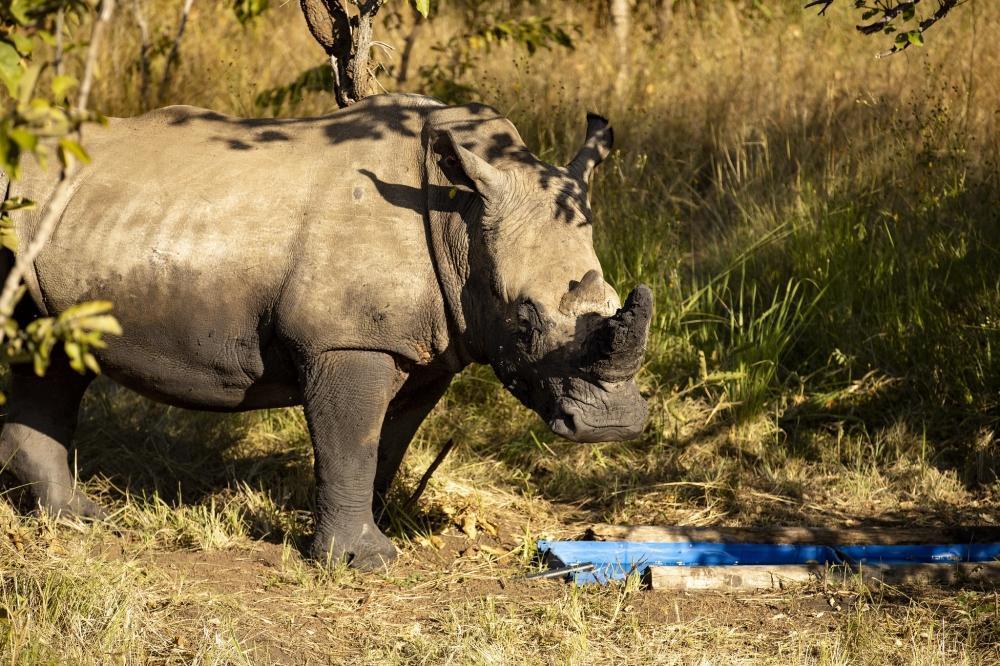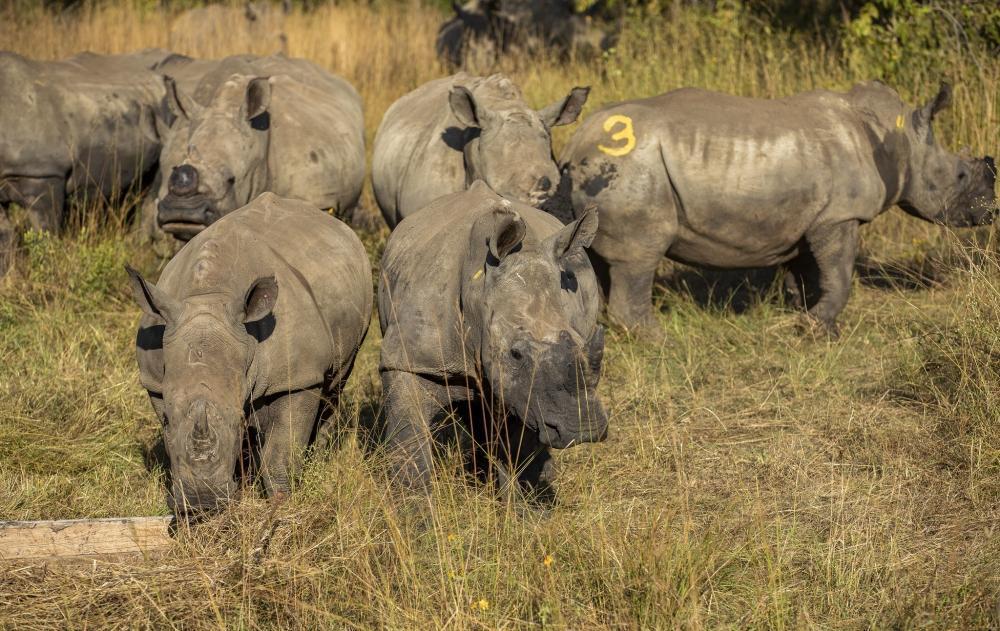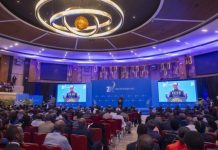Africa-Press – Rwanda. Akagera National Park is taking centre stage in a continent-wide campaign to restore rhino populations, as African Parks launches a $2 million fundraising drive to support the translocation of 2,000 rhinos from South Africa to safe landscapes across Africa.
Unveiled on September 23, 2025, the initiative will move up to 300 rhinos annually over the next decade, with Rwanda emerging as one of the key destinations for these endangered giants.
“After due diligence with the South African government and emergency funding to secure the animals, conservationists took responsibility for 2,000 captive-bred rhinos,” African Parks announced. “We are now launching a campaign to rewild them, with a goal of raising $2 million in two months.”
Rewilding is a form of ecological restoration aimed at increasing biodiversity and restoring natural processes. It differs from other forms of ecological restoration in that rewilding aspires to reduce human influence on ecosystems
Rwanda’s growing conservation role
For Rwanda, the project builds on significant conservation milestones. In June 2025, the Rwanda Development Board (RDB) and African Parks translocated 70 southern white rhinos to Akagera, bolstering the 30 introduced in 2021.
“This historic translocation reflects Rwanda’s growing contribution to global conservation efforts,” RDB CEO Jean-Guy Afrika said at the time. “Protecting endangered species is central to our vision of sustainable tourism, where thriving wildlife and well-managed protected areas like Akagera create long-term value for both visitors and communities.”
The story of rhinos in Akagera is one of near-loss and revival. In the 1970s, the park was home to about 50 black rhinos, but rampant poaching drove them to local extinction. The last rhino was sighted in 2007. A decade later, in 2017, reintroduction began, paving the way for the current thriving population.
Today, a dedicated veterinary team monitors the animals’ health and behaviour to ensure they adapt smoothly to their new environment.
Expanding partnerships and ambitions
Eugene Mutangana, head of conservation management at RDB, noted that Rwanda’s collaboration with African Parks extends beyond translocations. Plans are in motion to establish a conservation academy that will serve as a regional hub for training and knowledge sharing.
“This is positioning Rwanda as a regional conservation hub,” he said. “It cements our reputation as a thought leader in conservation and natural resources management.”
Jean Paul Karinganire, funding and reporting manager at Akagera National Park, added that the 70 rhinos received earlier this year are part of the 2,000 set to be rewilded continent-wide.
African Parks, which also manages Nyungwe National Park under agreements with the Government of Rwanda, has already demonstrated remarkable results across Africa. Rhino population growth in its managed parks has climbed from 1.3% to 7.8%, while the number of orphaned calves has dropped by 55%.
Improved management and stronger protection
Reforms in rhino management have also reduced stress and improved animal wellbeing. Removing internal fences has allowed natural movement and grazing, while new feeding practices replaced costly cycles of mowing, storing, and redistributing grass. Instead, tailored feed mixes designed with local experts now provide better nutrition and lower operational costs.
Strengthening security was also a priority.
A partnership with the Southern African Wildlife College enabled a full ranger training programme, resulting in a law enforcement team that grew from just 10 to over 35, including nine women, significantly improving the project’s overall security capacity.
Today, these rangers are out on active patrol, visibly present, and fully aligned with African Parks’ field protocols and standards.
More than 120 staff members are directly engaged in the park’s rhino programme
Tourism dividends for Rwanda
The resurgence of rhinos has elevated Akagera’s status as a full “Big Five” destination, strengthening Rwanda’s global tourism appeal.
Visitor numbers to Akagera have grown steadily since its transformation under African Parks management. In 2024, the park welcomed over 56,000 visitors, including more than 48,000 paying guests.
Rwandans made up 45% of these, underscoring strong domestic engagement. That year, Akagera generated $4.7 million in revenue, with projections rising to $4.9 million in 2025.
The benefits ripple outwards. Communities living around the park gain from jobs, business opportunities, and revenue-sharing schemes that fund schools, health centres, and infrastructure.
With the expanded rhino population, officials expect further growth in high-value tourism, reinforcing Rwanda’s model of linking biodiversity protection with socio-economic development.
Continental impact, Rwandan leadership
The broader Rhino Rewild Initiative is already underway. In 2024, 40 rhinos were moved to Munywana Conservancy in South Africa, while 120 went to reserves under the Greater Kruger Environmental Protection Foundation.
Early results show healthier herds and higher survival rates, as conservation shifts from farming to true rewilding.
For Rwanda, Akagera’s central role in this effort is both a symbol and a strategy: a symbol of the country’s resilience in reviving its lost wildlife, and a strategy for sustainable economic growth rooted in conservation.
As African Parks pushes to raise $2 million to accelerate the rewilding campaign, Akagera stands as proof that with investment, partnerships, and political will, endangered species can be brought back from the brink — and in doing so, transform communities and economies along the way.
For More News And Analysis About Rwanda Follow Africa-Press








